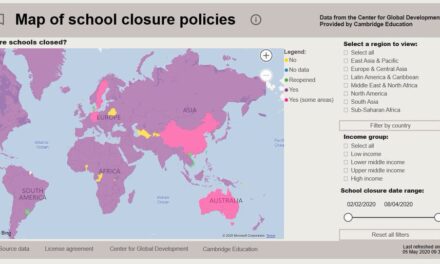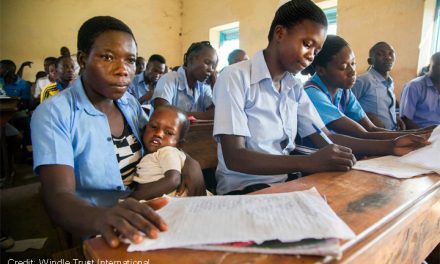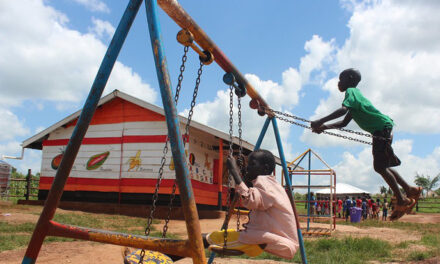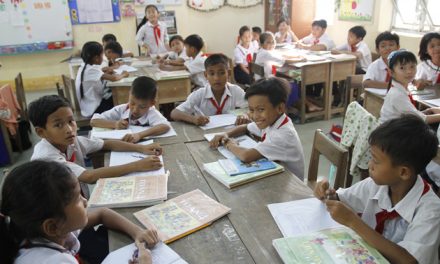This blog was written by Wan Iliani Wan Ahmad Murtadza, History Teacher & Alumna of Teach For Malaysia. It has been published for International Day of Solidarity with the Palestinian People on 29 November 2024.
The bell rang loudly, signifying the end of the mid-morning recess. In the corridors, students rushed to their classrooms. As I stepped into my Grade 11 History class, my attention was drawn to the notice board where a student had sketched the flag of Palestine with a bold caption: “Free Palestine!”. This was in 2014, back in my second year as a Teach For Malaysia Fellow in Perak, a state whose history included the signing of the Pangkor Treaty of 1874, that established British colonial dominion over the Malay states. Now, a decade later, some of those students are on peacekeeping missions in the Middle East, carrying forward lessons of empathy and justice. Today, still a History teacher, I am reminded daily that for students to shape a better future, we must continue to engage in difficult historical conversations that encourage us to stand in solidarity against oppression and injustice everywhere.
For over 400 days the world has watched in disbelief and horror as Israel has killed more than 43,000 people in Gaza, nearly 70% of them women and children. On 7th October, 2023, Palestinian armed groups launched attacks on southern Israel, killing approximately 1,200 people and taking 253 hostages. Israel’s military response has been massive and disproportionate, the campaign involves airstrikes and ground offensives across Israeli-occupied Gaza, such as homes, schools, healthcare facilities, shelters, and refugee camps – hunger and suffering are only compounding every day for the innocent Palestinian civilians. We all know that thousands more lie unaccounted for under the rubble or have succumbed to disease. Nearly the entire population of Gaza has been displaced, repeatedly. The blockade of Gaza has led to a humanitarian catastrophe and amounts to collective punishment of the civilian population, and the use of starvation as a weapon of war. In the Gaza Strip, nearly nothing remains that could sustain organised human life of the Palestinians.
The impact on children has been especially devastating. More than 660,000 school-aged children in Gaza, who should be in classrooms, are now only learning how to survive. Reports by the Palestinian Ministry of Education and Higher Education (MoEHE) indicate that since 7 October, Israeli military operations have claimed the lives of over 10,000 school students and hundreds of educational staff. All school-aged children in Gaza have lost more than one full year of formal schooling, putting their educational futures in jeopardy. School buildings that once symbolised hope and growth are now shelters for the displaced or lie in ruins. Mattresses and blankets fill classrooms and school hallways; desks are repurposed as walls and wardrobes, and playgrounds are filled with tents and tarpaulins.
Even in the West Bank, where movement restrictions, military operations, and settler violence disrupt daily life, education has also been stifled. 782,000 students face disrupted learning due to barriers like checkpoints and military patrols that often make it impossible for teachers and students to reach schools safely.
As a History teacher, I am fortunate to have the freedom to hold space for my students to reflect on the lived experience, and history, of Palestine. One of the best ways to convey the struggles of Palestine to young people remains using social media. Platforms like Instagram, Youtube, and especially Tiktok, have all been powerful and useful for my students. On occasion, I ask them to read the comments section under videos and we engage in discussions on how media influences perceptions, reinforcing critical thinking.
Education is fundamental for every child, to cultivate empathy, resilience, and a commitment to equity. Teaching students to recognise and understand privilege and oppression helps them see how systemic issues create uneven opportunities and perpetuate harm. This awareness fosters empathy and drives them to challenge unfair laws, rules, and behaviours that marginalise communities. Encouraging young people to act in solidarity involves guiding them to seek out and truly listen to the voices of those directly affected by an issue and to stand alongside them with mutual respect to transform unfair systems. It also means helping students reflect on how their words and actions might reinforce inequality and injustice, and understand whose voices are privileged and whose are silenced. Supporting students as they unlearn harmful ideologies, such as white supremacy, sexism, racism, and homophobia, while recognising how they may have benefited from these structures, is a vital part of education. Encouraging students to question and dismantle harmful ideologies helps them learn how to stand in solidarity with those who need it most, and contribute to building a just and equitable world.
I have encouraged my students to actively exercise their voices by speaking up on social media to spread awareness of the real-time atrocities. Many of them have taken this to heart, standing in solidarity with the Palestinian people, participating in online activism, boycotting products linked to injustice, and even going further to join peacekeeping efforts in affected regions. Their commitment gives me hope that this generation will be the force that pushes leaders to act decisively against genocide and stand firmly for human rights and dignity.
One day, a student remarked that staying neutral in times of oppression is like “keeping quiet while witnessing a class bully victimise others right before our eyes.” It brought to mind Bishop Desmond Tutu’s words spoken against Apartheid: “If you are neutral in the situations of injustice, you have chosen the side of the oppressor. If an elephant has its foot on the tail of a mouse, and you say that you’re neutral, the mouse will not appreciate your neutrality.” Only by standing together in solidarity against the decades of injustice can we hope for a future where children everywhere, including in Palestine, can live free and thrive.





